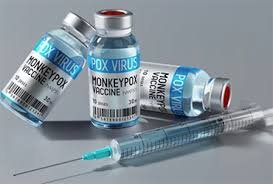Korede Abdullah in Lagos
This week, the Democratic Republic of the Congo (DRC) will receive a major boost in its fight against mpox with the arrival of 200,000 vaccine doses from Gavi, the Vaccine Alliance.
With over 20,000 reported cases and 49 deaths by mid-April 2025, DRC remains the most severely affected country in the global mpox outbreak. The new shipment brings the total number of doses received by the country to more than 950,000.
“Beyond its strong symbolism, this delivery demonstrates the constant mobilization of all actors involved in protecting the most vulnerable communities and preserving global health,” said Dr. Samuel Roger Kamba, Minister of Health of the DRC.
Since the mpox outbreak was declared a Public Health Emergency of International Concern (PHEIC) in 2024, countries across Africa have seen a surge in cases. The emergence of the mpox Clade Ib prompted both the WHO and Africa CDC to raise alerts.
As of April 2025, nearly 31,000 confirmed cases have been recorded across 24 African nations, with the new strain also spreading to 16 countries outside the continent. The DRC has administered over half a million doses since October 2024, targeting especially vulnerable areas impacted by conflict and displacement.
Gavi has played a central role in the international vaccine response through its First Response Fund, created in the wake of COVID-19 to ensure rapid access during emergencies.
In September 2024, Gavi signed an advance purchase agreement with Bavarian Nordic to secure 500,000 doses of the MVA-BN vaccine, now WHO-approved. These doses, along with nearly 250,000 donated by other countries and manufacturers, have been distributed to nations including Nigeria, Rwanda, and Kenya.
“The best way to save lives and lessen the spread and economic impact of infectious disease outbreaks worldwide is to invest in prevention and early response,” said Dr. Derrick Sim of Gavi.
Looking ahead, Gavi aims to establish a global stockpile of mpox vaccines from 2026 to 2030, similar to existing reserves for cholera, Ebola, meningitis, and yellow fever.
This initiative hinges on securing at least US$ 9 billion in funding from donors. “Thanks to the support of our Board and donors, the resources we put in place after the pandemic are doing their job,” Dr. Sim emphasized, underscoring the importance of continued investment in global health security to prevent further outbreaks and protect vulnerable communities.



